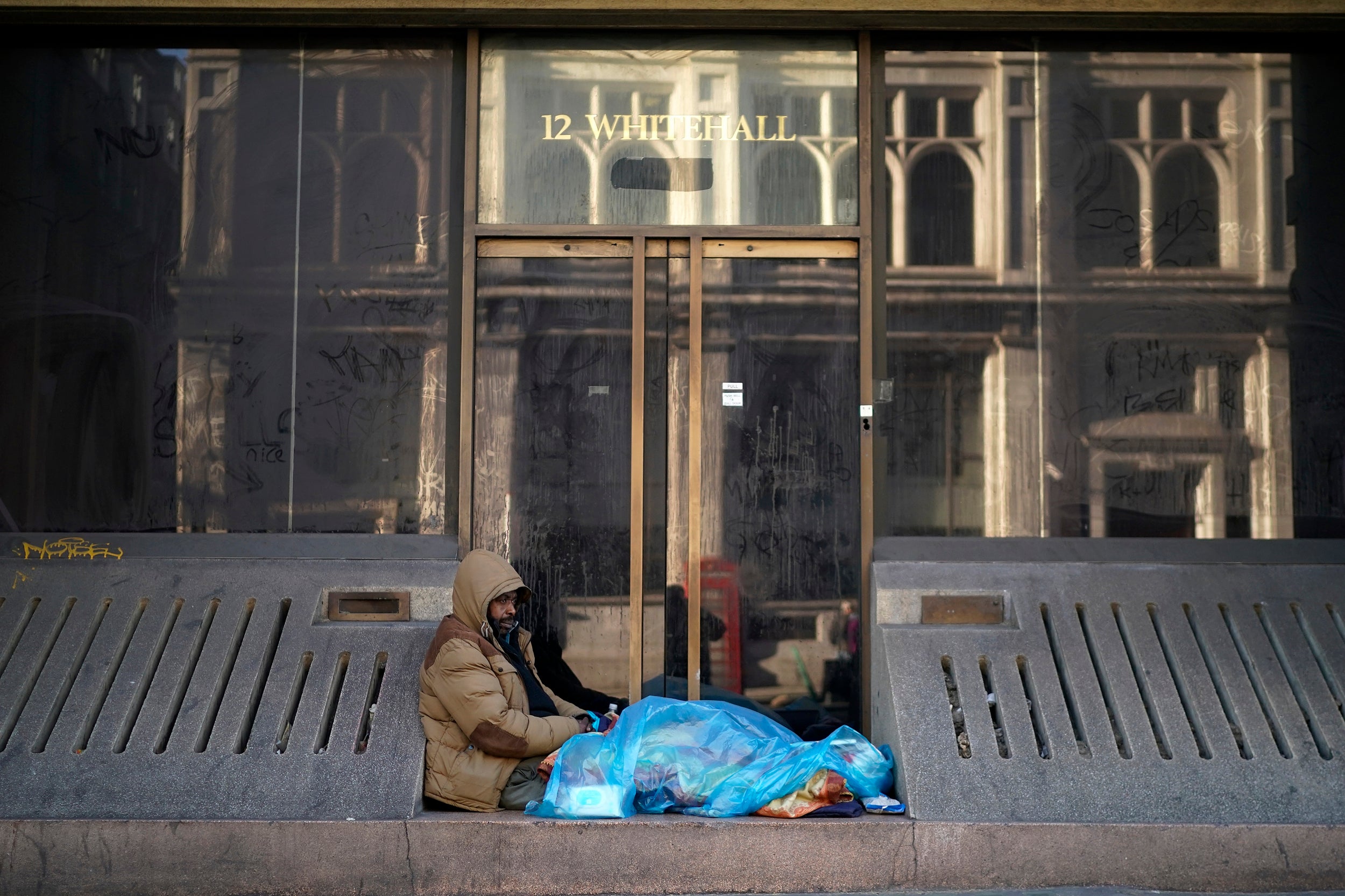Councils accused of 'social cleansing' as fines issued for rough sleeping in breach of government guidelines
'These orders are illiberal, scary and a public joke'

Your support helps us to tell the story
From reproductive rights to climate change to Big Tech, The Independent is on the ground when the story is developing. Whether it's investigating the financials of Elon Musk's pro-Trump PAC or producing our latest documentary, 'The A Word', which shines a light on the American women fighting for reproductive rights, we know how important it is to parse out the facts from the messaging.
At such a critical moment in US history, we need reporters on the ground. Your donation allows us to keep sending journalists to speak to both sides of the story.
The Independent is trusted by Americans across the entire political spectrum. And unlike many other quality news outlets, we choose not to lock Americans out of our reporting and analysis with paywalls. We believe quality journalism should be available to everyone, paid for by those who can afford it.
Your support makes all the difference.Councils have been accused of using a “form of social cleansing” after it emerged they were misusing powers to hand out fines for rough sleeping.
There has been an 89 per cent rise in local authorities issuing Public Spaces Protection Orders (PSPOs), which criminalise acts such as rough sleeping and begging, in the last three years, according to data obtained through freedom of information requests.
The figures revealed a sharp rise in on-the-spot fines for breaches of PSPOs – almost 10,000 penalties of up to £100 were handed out in 2018.
Guidance from the Home Office in 2017 said PSPOs should not target rough sleeping or restrict the everyday use of public places.
Introduced in 2014, the orders allow local authorities to ban behaviour deemed to have a “detrimental effect” on “the local community’s quality of life”.
Critics said the “petty” powers are being used over-zealously to punish people for “entirely innocuous actions”.
Rosie Brighouse, of human rights group Liberty, said the orders were a “particularly cruel way to respond to people’s poverty”. She added: “PSPOs are a very blunt instrument – they can only lead to people being fined. We also worry in a lot of ways it’s a form of social cleansing.”
The figures, obtained by civil liberties group the Manifesto Club, reveal that 276 orders were made by 147 councils between August 2017 and January 2019.
This is an average of 15 per month – compared with an average of eight per month between November 2014 and February 2016.
Josie Appleton, director of Manifesto Club, said: “Thousands of people are being criminalised for actions such as sitting on the floor, appealing for charity donations, or asking for casual work.
“PSPOs often target the homeless and others who lack the power to defend themselves. These orders are illiberal, scary and a public joke.”
Meanwhile, the UK Statistics Authority (UKSA) has warned that the government’s claim that rough sleeping fell by 2 per cent in England last year was based on unreliable figures.
Chair of UKSA, Sir David Norgrove, said the official figures for 2018 should not be used to make claims about rough sleeping until ministers address concerns that some councils had deliberately underreported the scale of the crisis.
A Home Office spokesperson said: “We are clear PSPOs should be used proportionately to tackle anti-social behaviour, and not to target specific groups or the most vulnerable in our communities.
“We set this out clearly when we refreshed the statutory guidance for frontline professionals on the use of the anti-social behaviour powers and councils must consult with the local police and appropriate community representatives before they publish the draft order.
“It is for local agencies to determine whether their use of the powers is appropriate, and that they are meeting the legal tests set out in the legislation.”
Join our commenting forum
Join thought-provoking conversations, follow other Independent readers and see their replies
Comments